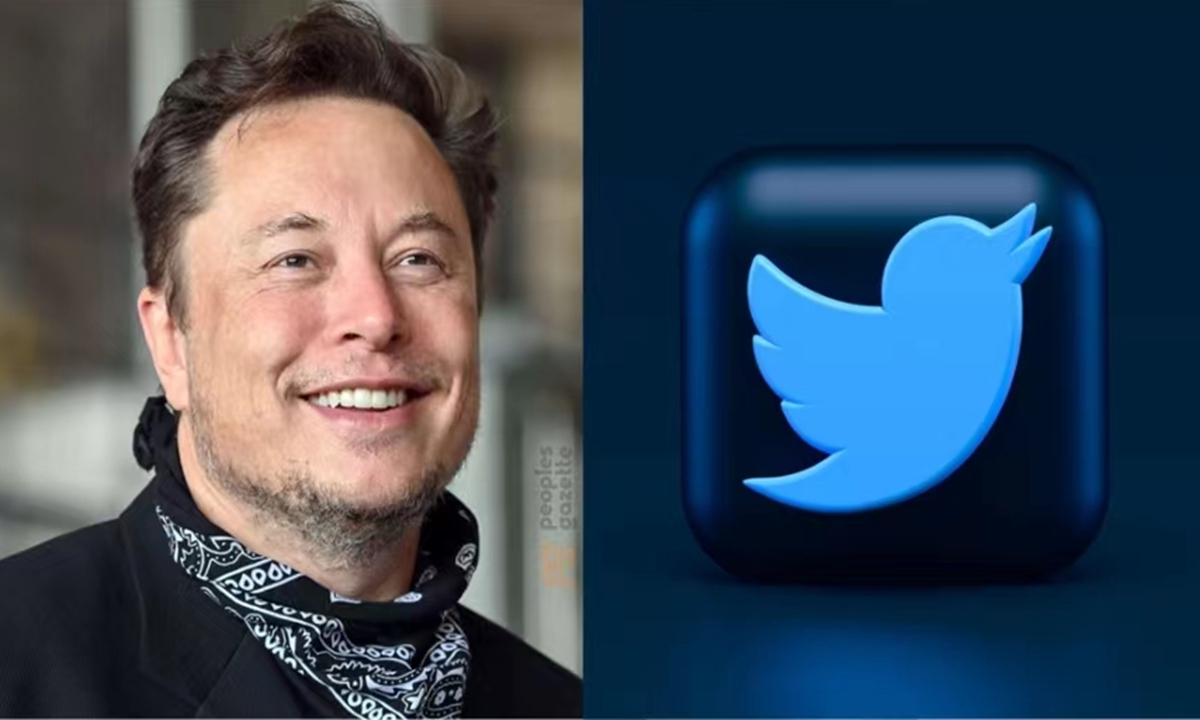News about Elon Musk's Twitter takeover has sparked continuous heated discussions in the US recently. The focus of some, however, has apparently been off the track. A New York Times reporter tweeted to question whether Twitter would become one of the platforms Beijing will gain leverage over in the future. It was re-tweeted and commented on by Amazon founder Jeff Bezos. There are also voices saying that Musk will have to seek a balance between his support for free speech and his business activities in China, and that China will exert influence on Twitter through Musk.
Many American media outlets didn't forget to "remind" people of the fact that Musk once "praised" China, and he encouraged people to visit China and see for themselves. At a critical moment when China and the US were locked in trade frictions in 2019, Tesla's Shanghai Gigafactory kicked into production. In merely over a year, Shanghai-made Teslas have accounted for more than half of Tesla's global delivery. Musk has dealt a lot with China and spoke out some truths about China's economy, they are regarded as "original sins" of Musk by some Americans. Many link Musk's Twitter deal with China and raise it to the level of "risks" or "threats", which shows how narrow the room for pragmatism and rationality toward China in the US has become. Similar incidents have become common in the US. Making an issue of China in every possible way has already become an "American disease." In the face of China's growing comprehensive national power that is closing the gap with the US', the confidence of many political elites in Washington has been declining. And these people are showing anxiety and over-sensitivity toward China, not letting go of any opportunity to hype the "China threat" theory. After Musk acquired Twitter, some from American media even urged Musk to cut off his business ties with China to "guarantee freedom of speech." Such extreme overbearingness hilariously overlaps their weakness.
An interesting phenomenon is that many China security-related discussions contain various "private interests" if you look at them closely. Some businesspeople, such as George Soros, blamed China for their failure due to their wrong investment decisions in China. Others try to show their allegiance to the US. For example, Bezos often stresses security with a high-profile patriotic posture, but what he actually eyes are Pentagon orders that are highly profitable. More lawmakers and politicians touch on the China topic in an exaggerated and forcible way, through which they attack opponents as "weak." The "China Threat" is becoming a tacit business approach or a code to seek attention.
From the national perspective, Sinophobia which is currently rampant in American society is not fundamentally different from "Japanophobia" that prevailed in the 1980s and 1990s. In both cases, the US regards a "chaser" as competitor, on which the US tried to suppress by any means to ensure its own competitive advantage. But the end of the story will be different because there is no way that Washington can overwhelm China in the same way that it coerced Japan to sign a Plaza Accord. Chinese people do not believe in fallacies, nor are we afraid of evil forces. We will never yield to threats or coercion. As to words and deeds of forcefully making an issue of China, they remind people of an ancient poem: Along the Yangzi River, apes moan ceaselessly. My boat has passed ten thousand mounts briskly.
It must be pointed out that making an issue of China can't save the US. Instead, it will continue to intensify all the problems Washington is facing, be they domestic or external, and squeeze the room to solve these issues in the future. Even some people of insight in the US have warned that the excessive attention on undermining Beijing's advantages could make Washington neglect its most important tasks at home and push its foreign policies to deviate from its course even further. "American hubris is always a danger, but so is exaggerated fear, which can lead to overreaction," wrote US scholar Joseph Nye last year. "The US and China must avoid exaggerated fears that could create a new cold or hot war," he added. It seems that those who are sick are unwilling to take medicine.
The US is trying to oppose China in every possible aspect, reflecting the peremptory squeezing of reality by the US' anti-China ideology. But the reality is also resisting the ideological pressure at all times. The twist has distorted some US elites' mindset, making them fall into hesitation and division. However, the "China threat" is not the root cause of Washington's internal and external problems. Reality will make them understand sooner or later that win-win cooperation is the effective cure for their disease.





